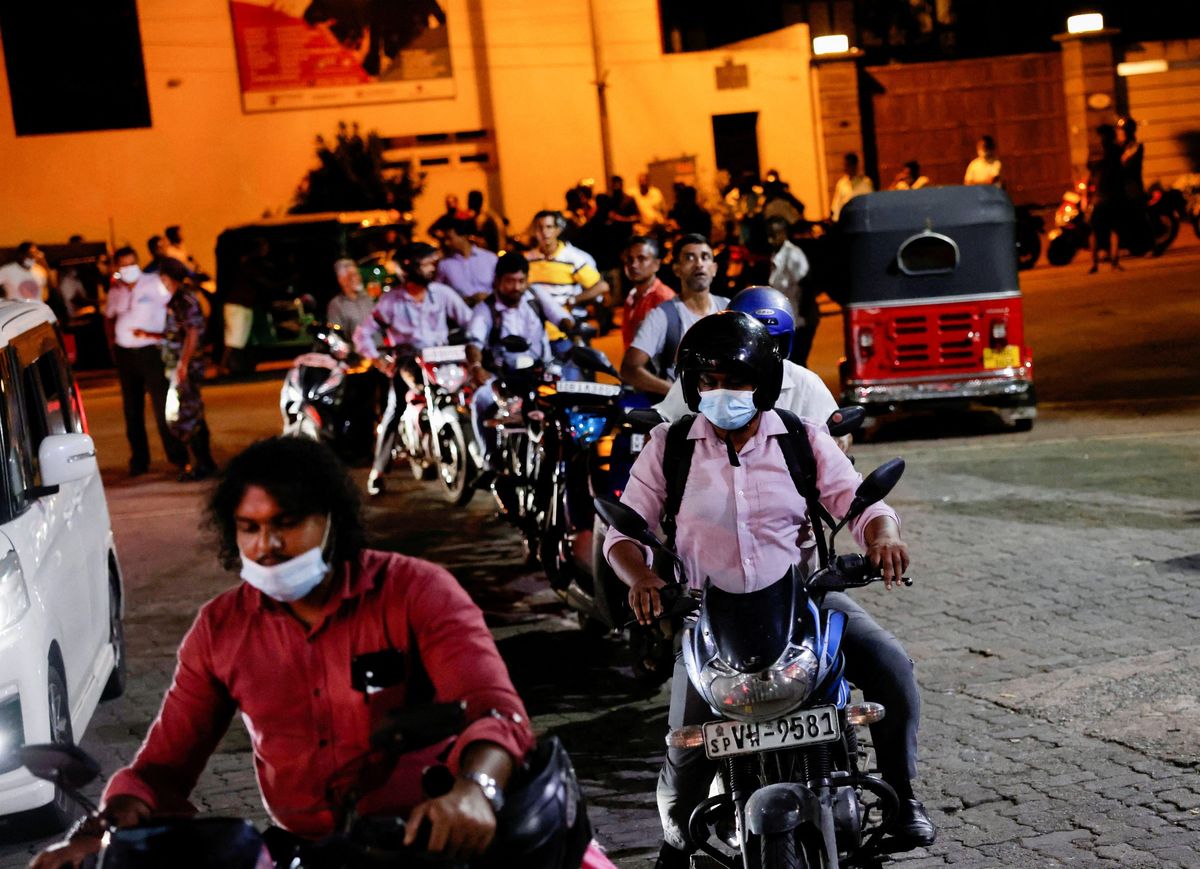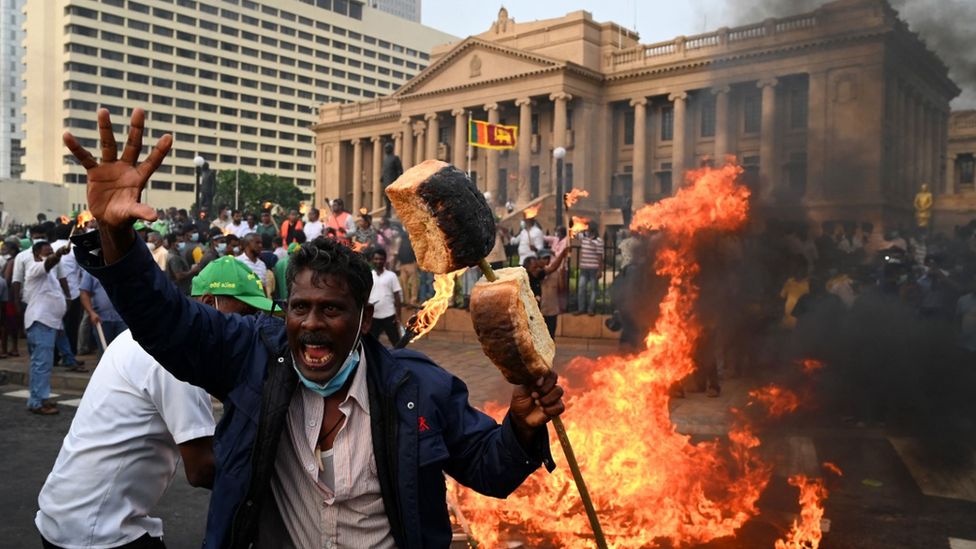Sri Lanka’s temporary gas sale ban, explained

A few minutes every morning is all you need.
Stay up to date on the world's Headlines and Human Stories. It's fun, it's factual, it's fluff-free.
Sri Lanka decided Monday to temporarily restrict fuel supply and halt gasoline sales to non-essential vehicles, essentially forcing people to stay home and go virtual for the next two weeks. During this time, only buses, trains and vehicles used for medical services and transporting food will be able to purchase gas.
The country is in the middle of talks about a potential bailout deal, while it’s also struggling to pay for imports like fuel and food. The recent move risks causing further unrest, though, following a wild few months that included the country’s prime minister quitting and the collapse of the economy – as well as ongoing demands for the president’s resignation, which President Gotabaya Rajapaksa has already said is not happening. In May, Sri Lanka defaulted on its international debt for the first time ever.
In addition to the new fuel restrictions, Sri Lankan envoys are headed to Qatar and Russia this week to negotiate for fresh supplies. The country is also hoping to get approval for another US$500 million in credit from India for fresh fuel imports. This is in addition to the about US$4 billion India has already lent Sri Lanka for fuel and essentials this year. It also plans to let foreign companies begin distributing fuel simply to help solve the massive shortage.
The new restrictions mean public schools are closed, and the government is asking people to work from home to reduce transportation costs as people line up for kilometers at gas stations.
Key comments:

“I was in a queue for two days. I got a token – number 11 – but I don’t know when I will get fuel," said S Wijetunga, a 52-year-old private sector executive. “I need to go to the office now, so I have no option but to leave my vehicle here and go in a three-wheeler."
“We are doing everything we can to get new stocks, but we don’t know when that will be," power and energy minister Kanchana Wijesekera told reporters on Sunday.
“Sri Lanka has never faced such a severe economic crisis in its history," said government spokesman Bandula Gunewardena to reporters.




Comments ()